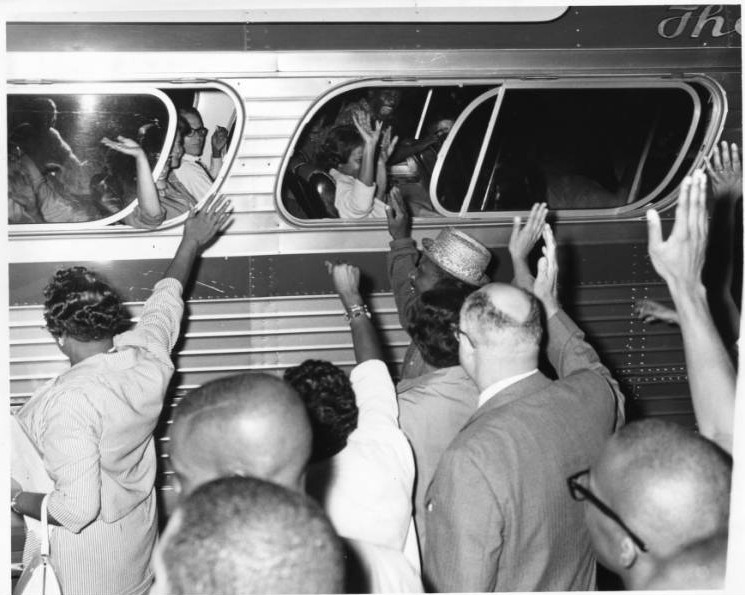
Bus departing for March on Washington for Freedom and Jobs, Hartford, August 28, 1963
– Hartford History Center, Hartford Public Library and Connecticut History Online
Throughout state history everyday people have banded together on local and national issues to defy the status quo and call for change. The causes have been diverse, from anti-slavery, temperance, and universal suffrage to the Good Roads movement championed by Hartford bicycle innovator Albert Pope in the late 1800s. Often the struggle is long, as witnessed by indigenous groups’ quest for recognition and land rights. And sometimes it is violent, as seen in the Hartford and New Haven riots of the Civil Rights era. Noted Connecticut reformers include abolitionist Roger Sherman Baldwin, who defended the Amistad captives, and Estelle Griswold, who, in the 1960s, challenged the state’s ban on birth control.
Featured
The Language of the Unheard: Racial Unrest in 20th-Century Hartford
Race riots in Hartford during the 1960s came about thanks to a century of frustration and political inaction surrounding disparate standards of living among different races and ethnicities, …[more]





